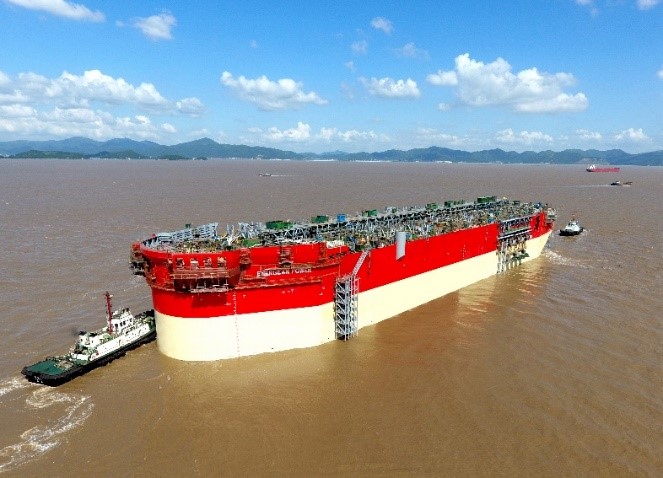
Energean expects its Karish gas project in Israel to reach first gas in the fourth quarter of 2021 and the Edison E&P deal to close this December.
The company’s CEO Mathios Rigas said it was making “solid progress” at Karish. “The project’s economics, cash-flows and returns profile have been further enhanced”, he said. The company signed two gas sales agreements in September for 1.4 billion cubic metres per year for Karish. These took the contracted total to 7 bcm per year.
It has also increased its expectation of liquids production plateau to an average of 28,000 barrels per day, from previous estimates of less than 10,000 bpd.
The Karish development was 85% complete as of October 26. The main modules have been lifted onto the Energean Power’s hull, in Singapore.
Energean expects to complete subsea and onshore works for Karish in the second quarter of next year. The floating production, storage and offloading (FPSO) vessel should leave Singapore in the summer.
The company will complete the installation of risers in the first quarter of 2021, connecting the production wells to the FPSO. Onshore work, for gas deliveries, began in August and commissioning is due early in 2021.
The Israeli Ministry of Energy approved an expansion field development plan (FDP), Karish North, in August.
The company expects to reach final investment decision (FID) on Karish North, and Egypt’s NEA/NI plan, before the end of 2020.
Waiting on Cairo
Energean also reported progress in its acquisition of Edison E&P. Rigas said the deal should complete in December. This would “further secure our long-term, resilient cash flow profile and option-rich portfolio”. As closing continues to drag on, the price Energean will pay increases.
The deal has an effective date of January 1, 2019. Had the transaction closed by May 31, 2020, Energean would pay $178 million. If it had achieved this by the end of September, it would have paid $224 million in cash. The company now expects the deal to complete for $284mn.
The UK, Greece and Italy has approved the deal and France is expected to approve “imminently”. This will leave Egypt as the last remaining approval required.
After the deal is completed, 70% of Energean’s future production will come under long-term gas sales agreements. This will “largely insulate our revenues against commodity price volatility and enable us to realise our medium-term ambition to pay a meaningful and sustainable dividend”, Rigas said.
The company was also keen to talk up its plans to cut emissions. It plans to power work on the Prinos licence, in Greece, with renewable energy. This will reduce Scope 1 and 2 emissions by 45%.
“We are exploring opportunities to roll this strategy out across all operated assets in the post-completion portfolio, which will mark a near-term step towards our net zero goal. We are confident that we can achieve this target and are also assessing a number of other options that would leverage our upstream expertise, such as carbon capture and storage, to help to deliver a lower carbon world,” Rigas said.
